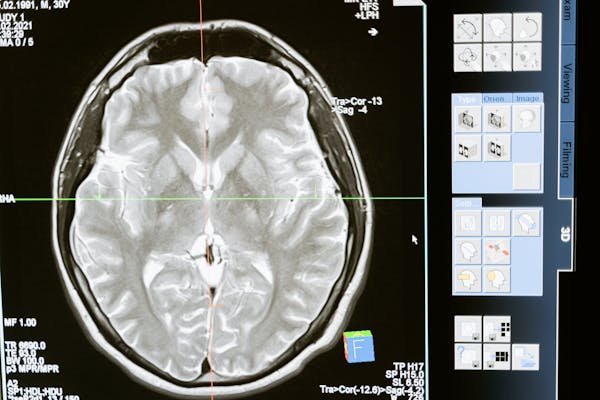Introduction
The fast pace of life today has made weight management a widely prevailing issue; thus, people look for quick and efficient ways of managing weight. This makes weight loss drugs a popular choice for people who find it difficult to lose weight through diet and exercise. But with the increasing use of such medication, there is one question that lurks over-the long-term health effects of their use. A linkage of weight loss drugs and dementia, a degenerative brain disease affecting memory and cognitive abilities, is a point of concern.
This article updates the current knowledge about drugs for weight loss, discusses the impact of weight loss drugs on brain health, and identifies the potential link between these medications and dementia. We are going to make a review of the advantages and disadvantages of having a resort to weight loss drugs and will include useful information for those who plan to turn to weight loss medication as part of their weight management plan.
What Are Weight Loss Drugs?
Anti-obesity drugs, also known as weight loss drugs, are categories of medication that decrease body weight. They act by suppressing appetite, inhibiting fat absorption, and even increasing metabolism. Common weight loss drugs include:
- Phentermine: It is an appetite suppressant drug working on the central nervous system.

- Orlistat (Xenical): It decreases fat absorption from the diet.
Liraglutide (Saxenda): This medication works through appetite regulation and intake of food. Bupropion-Naltrexone (Contrave): It is a drug combination that works via neurotransmitters in the brain, thus decreasing the urge to eat food. Such drugs are prescribed mainly for people having a body mass index of over 30 or those who have a BMI of 27 or greater with associated conditions of obesity, including hypertension or type 2 diabetes.

Weight Loss Drugs and Brain Health: Is There a Link?
While a number of studies have demonstrated the effectiveness of such medications, less is known about their impact on brain health. More recently, scientists have started to investigate whether these pharmaceuticals may have unwanted side effects with regard to dementia.
Overview of Dementia
Dementia is a collective term for a set of symptoms that represent a decline in cognitive function, including memory, problem-solving ability, language, and thinking. The most common form of dementia is Alzheimer’s disease. Cases of dementia will continue to rise as the global population ages, making it paramount that how lifestyle can impact risk-not just through diet and exercise, but also through medication-is identified.
How Weight Loss Drugs Could Impact Dementia Risk
Several theories have been postulated about how drugs that cause weight reduction might impact dementia risk. They include:
- Impact on Neurotransmitters of the Brain
Most weight loss medications affect neurotransmitters, the chemicals in the brain through which signals are transmitted. Drugs such as Phentermine act upon norepinephrine, a naturally occurring chemical in the brain that regulates wakefulness and, consequently, suppresses appetite. Long-term tampering with neurotransmitter levels can have unexpected effects on brain health and lead to cognitive decline or dementia.

- Effect of Blood Sugar and Insulin Resistance
Other medications for weight loss, especially those used by patients with diabetes on account of obesity, may have an effect on blood sugar levels. There indeed exists a strong link between type 2 diabetes and an increased susceptibility to dementia. It is not known if weight loss medications that affect insulin sensitivity may increase this susceptibility over time.

- Chronic Inflammation:
Obesity itself is a state of chronic inflammation, related to neurodegeneration and dementia. While weight loss reduces inflammation, some studies suggest that drugs for losing weight may have an inflammatory effect themselves, which could be increasing dementia risk in vulnerable subjects.
Studies on Weight Loss Drugs and Dementia
A few scientific studies have linked weight loss medications with dementia, although the findings have not been established conclusively. We summarize below some relevant research findings:
1. Phentermine and Cognitive Function
Phentermine, one of the most prescribed medications for weight loss, has been observed to affect the release of norepinephrine and dopamine in the brain. Long-term administration of Phentermine in some animal tests may cause neurotoxicity that could lead to neurodegenerative diseases such as dementia. This, however, is very limited in human studies; therefore, the impact of the drug on the brain over time is rather undetermined yet.
Some brain-affecting research also took interest in Orlistat. One of the disadvantages of Orlistat is the drug’s possible capability to hinder the absorption of vitamins soluble in fat, which includes vitamin D and E essential for the brain. A few small studies suggested that Orlistat may lead to cognitive impairment associated with nutritional deficiencies; however, this association has yet to be determined in further detail.
3. GLP-1 Receptor Agonists (Liraglutide)
GLP-1 receptor agonists, of which Liraglutide is an example, represent newer weight loss drugs which have some promise in the reduction of body weight and an improvement of blood sugar control. Of particular interest is that these GLP-1 receptor agonists may confer neuroprotective effects, thereby decreasing the risk for dementia. The impact of these drugs on cognitive function in the long run remains a subject of study.
Risk Factors for Dementia Beyond Weight Loss Drugs
It is important to note that the risk of dementia is influenced by various factors, which include, but are not limited to, genetics, lifestyle, and other comorbidities. Some of the major risk factors include:
Age: The risk for dementia goes hand in hand with increasing age.
Family History: A history of Alzheimer’s or other dementias in the family can increase your risk.
Obesity: Obesity, especially in midlife, is linked to an increased risk of dementia.
- Diabetes: It is also known that Type 2 diabetes contributes to cognitive decline and the risk for dementia.
- Cardiovascular Health: Poor heart health, such as hypertension and high cholesterol, are associated with increased risks for dementia.
With shared risk factors between both conditions, use of weight loss drugs, especially in those individuals who have chronic comorbid conditions of obesity and diabetes, should consider cognitive risk. Benefits and Risks of Weight Loss Drugs
Similar to any other medicine, weight loss medicines come with their own share of advantages and disadvantages. In this section, we outline the possible advantages and disadvantages associated with weight loss medicines, particularly in relation to brain health and dementia.
Benefits
- Control Over Weight:
The most significant benefit of weight loss medications is that these drugs can help achieve remarkable reductions in body weight, especially when combined with a healthy diet and exercise. This may reduce the risk of certain chronic diseases related to heart disease, type 2 diabetes, and certain cancers.
- Inflammation is Reduced:
Generally, the reduction of systemic inflammation due to weight loss is beneficial to the brain. Chronic inflammation has been implicated in both dementia and Alzheimer’s disease; hence, by reducing inflammation, weight loss may be protective.
Many drugs used for the treatment of weight loss have additional benefits that improve metabolic health, which assists in regulating blood sugar levels and reduces the risk of developing insulin resistance and, further, type 2 diabetes, both of which pose a risk for dementia.
Risks
- Potential for Neurotoxicity:
Certain weight loss medications, more specifically those that deal with neurotransmitter levels, can be detrimental to long-term brain health. Although the exact link between weight loss medications and dementia is still not well known, there might be some neurotoxicity involved in certain cases.
- Nutrient Deficiency:
Drugs prescribed for weight loss by preventing the absorption of fat, such as Orlistat, may lead to deficiencies in essential fat-soluble vitamins including A, D, E, and K. These vitamins are quite crucial for maintaining cognitive function, and deficiency in them could be associated with an increased risk for dementia.
- Long-Term Side Effects:
Not all the long-term side effects related to brain health are yet known for many weight loss drugs, which may mean users have unsuspected risks of cognitive decline. This needs consideration and follow-up on a regular basis by healthcare professionals.
Practical Advice for Those Considering Weight Loss Drugs
If you are considering weight loss medications as part of your weight management program, be sure to weigh the benefits and risks-should at least take brain health into consideration. Here are some steps that are quite effective:
This is why it is always important to consult with a doctor or specialist before taking any weight loss medication. They can consider your individual risk factors, such as for dementia, and advise the best course of action.
- Monitor Cognitive Health:
If you initiate weight loss medication, then give priority to follow-up on cognitive health. Routine visits and cognition checks may highlight early signs of memory problems or cognitive decline.
- Emphasize Overall Brain Health:
While medications for weight loss may help you achieve your goals, other brain-healthy changes should be instituted. These include a proper diet packed with nutrients that enhance the brain, such as omega-3 fatty acids and antioxidants; a regular pattern of exercise; controlled stress; and adequate sleep.
- Explore Alternatives to Medication:
If you are worried about some of the risks associated with some weight loss drugs, then consider non-medication alternatives; for example, increased physical activities, dietary modification, and behavioral therapy.
Conclusion
Weight reduction medications stand out as a common intervention for those affected by obesity; like any other medication, they have both their benefits and risks. Although the association between weight loss medicines and dementia has just begun to be studied, early results indeed suggest severe potential consequences of some medicines on the brain. It is vital that individuals planning to use such medications consult a physician and reflect on the potential cognitive risks.


